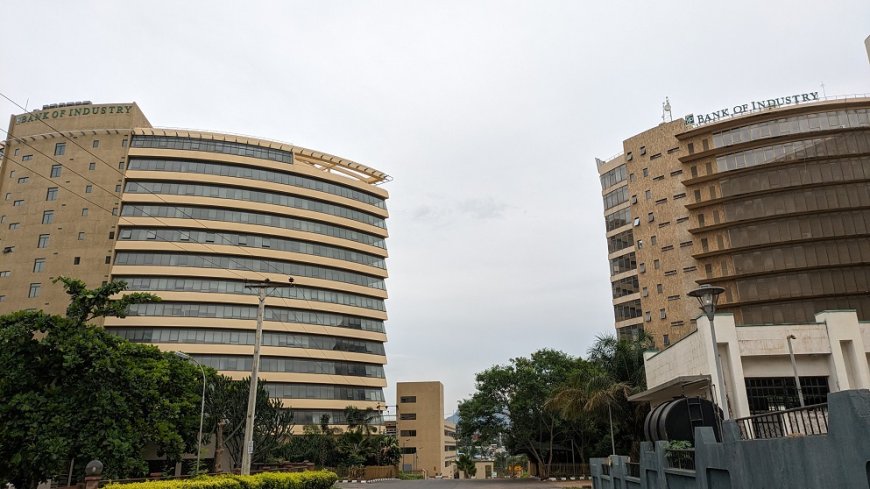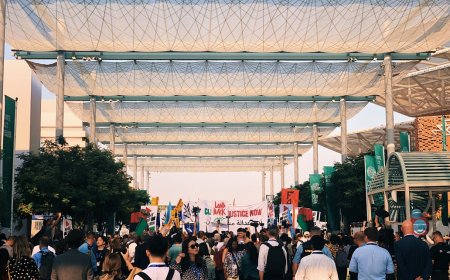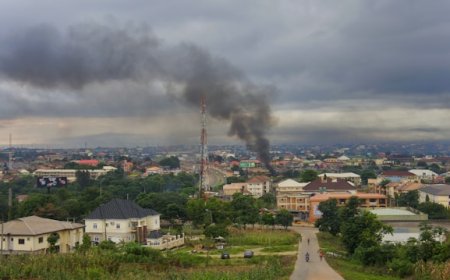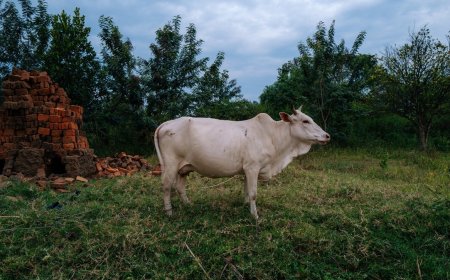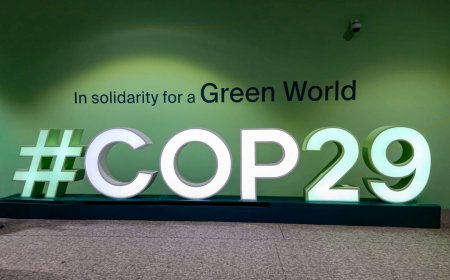Summary
- The African Continental Free Trade Area (AfCFTA) aims to promote intra-African trade and boost production. However, the global push for sustainability requires a balance between industrialization and environmental responsibility, especially given commitments under the Paris Agreement and the impact of global emissions on climate change.
- While Africa contributes minimally to global CO2 emissions, the need for its industrialization is undeniable for socio-economic growth. The challenge lies in achieving this while maintaining sustainable practices, especially given the emphasis on environmental criteria by global market gatekeepers.
- Africa's focus on sustainability can provide a competitive advantage, particularly with regulations like the European Union's Carbon Border Adjustment Mechanism. Sustainable practices not only address climate concerns but also enhance market access, public health, and socio-economic outcomes.
- Africa faces significant financial gaps in achieving its trade and climate goals. Solutions include harnessing climate finance, investments in infrastructure, and utilizing innovative financial mechanisms like 'Green Bonds', which bridge the gap between trade and climate finance.
- A harmonized trade and climate policy under AfCFTA is crucial. This might include a 'Sustainable Trade and Investment Code', promoting sustainable practices, and an 'African Green Label' for sustainably produced goods. Strategies should support SMEs, offer capacity-building for sustainable business practices, and incorporate regular reviews to ensure alignment with sustainability goals.
Introduction
The African Continental Free Trade Area (AfCFTA) Agreement is designed to drive African industrialization— defined as the shift towards greater production of high-value manufactured goods— through increased intra-African trade. This will be done through the elimination of tariff and non-tariff barriers facing trade among African countries. This is expected to stimulate higher demand for African-made goods and services, thus incentivizing investment in their increased production. However, all of this will be taking place within the context of a global economy that increasingly prioritizes sustainability. The increasing urgency is underscored in subsequent reports by the United Nations’ Intergovernmental Panel on Climate Change (IPCC). This, coupled with the reality of extreme weather events across the globe, have forced global leaders to contend with its gravity. For this reason, countries have been developing plans to reduce their emissions under the Paris Agreement implementation framework known as the Nationally Determined Contributions (NDCs).
Trade is responsible for approximately 20–30% of CO2 emissions worldwide, and industrialization is a significant contributor to carbon emissions. Africa is the least industrialized region globally and the current push for sustainability means that African nations have fewer environmental allowances towards structural transformation. Numerous African countries have already put forward ambitious plans to cut emissions, and these will inevitably influence the ways in which they develop their industries and trade their products. While the constraints may seem unjust, adopting sustainable methods in both production and trade could be pivotal for Africa's future competitiveness. However, achieving sustainability comes with a financial burden, underlining the need for financing and investment solutions that bridge trade and climate concerns for a sustainable AfCFTA.
African Industrialization is Non-negotiable; the Question is How.
The stakes are high for Africa. Although African countries make up over 17% of the world’s population, they contribute less than 3% to the world’s economy, around 3% to global trade, and less than 2% to global manufacturing output. Industrialization can be linked to higher incomes and better living standards which also makes it a socio-political imperative. Rising geopolitical tensions increase the sense of urgency for African development and self-sufficiency. There is no debate that Africa must industrialize and leverage on trade integration, yet how this can be done quickly in a sustainable manner remains open to question.
Why Should Africa Care About Sustainability?
While it is often noted that Africa bears a disproportionate brunt of climate change's effects despite contributing minimally to the crisis, there are intrinsic benefits to adopting sustainable practices. One of the silver linings of being a latecomer to industrialization is the opportunity to learn from the mistakes of others. This means that the adoption of sustainable approaches at the early stages of African industrialization can give the region a competitive advantage in the near future. This competitive advantage is not only linked to the use of technology and innovation but also to market access. Increasingly, nations and trading blocs are deploying environmental criteria as gatekeepers to their markets. The European Union's Carbon Border Adjustment Mechanism which went into effect in October 2023 levies tariffs on imports based on their carbon footprint. Furthermore, the EU's proposed Due Diligence Act— including Germany’s implemented version— will obligate larger companies to validate the sustainability of their operations and supply chains. Such regulations imply that EU-based firms may be more inclined to form trade partnerships with firms that can credibly demonstrate a commitment to sustainable practices, including those in Africa.
Boosting intra-African trade is not the end goal. The overarching aim is to elevate Africa's standing in the global trade landscape, necessitating sustained market access. Adopting sustainable trade and production practices today can serve as a cornerstone for safeguarding Africa's economic future tomorrow. Broader societal gains, such as enhanced environmental quality, can have a cascading effect on public health and other socio-economic outcomes. Consequently, environmentally friendly approaches in Africa are not only good for the planet but are for people and for business as well. The implementation of the AfCFTA thus presents an opportunity for the design and adoption of sustainable trade practices from within Africa, rather than having them externally imposed. This will elevate Africa’s contribution to global actions that fight climate change and drive sustainable development goals.
What Does Africa Need?
A unified voice among African leaders has consistently called for Western nations to fulfil their obligations in providing climate finance. While outcomes from COP27 might have fallen short of expectations, the 2023 Africa Climate Summit reiterated the call for a global tax or other financial mechanisms that mobilize resources specifically earmarked for Africa's climate mitigation, adaptation, loss and damage, and energy transition initiatives. Similarly, those steering the AfCFTA assert that adequate trade financing is indispensable for the agreement to truly flourish. Investment in the development of infrastructure that facilitates trade and enhances production capacities is another critical component. Yet the scale of the financial need is staggering. The African Development Bank estimates that the continent faces an annual trade finance gap of USD 81 billion. Moreover, out of the projected USD 2.8 trillion needed for African nations to achieve their NDC targets, there is an annual shortfall of USD 41.3 billion solely for adaptation measures. This estimate may even be conservative, as it potentially overlooks the costs associated with green trade infrastructure. Furthermore, industrialization is energy-intensive by nature and the continent is staring down an annual financial gap of USD 90 billion to meet its energy transition and access goals. Therefore, for sustainable trade and production under the AfCFTA to be realized, a synergy of climate and trade finance is imperative to warrant a multi-faceted and innovative approach that bridges these financial gaps.
The Task Ahead
Given the fiscal challenges already outlined, it's evident that Africa cannot go it alone and that partnerships with the global community are necessary. The advent of 'Green Bonds' represents one pathway towards unlocking required funds. These are bonds specifically earmarked for climate and environmental projects which could help close the financial gaps faced by Africa in its dual mission of trade and climate sustainability. Another option is to link climate and trade financing, with international financial institutions providing loans or grants that incentivize the integration of sustainable practices into the funded projects. Similarly, Public-Private Partnerships (PPPs) could help harness resources, leveraging on the strengths of both sectors. Other sustainability-linked financing options such as debt-for-nature and debt-for-climate swaps can be leveraged for critical resources.
The need for a comprehensive policy framework that harmonizes trade and climate goals under the AfCFTA can't be overstated. While the AfCFTA agreement as a whole does not refer much to green trade, the ‘Protocol on Investment’ specifies the need for ‘sustainable investment.’ This could inform a 'Sustainable Trade and Investment Code' that serves as a guiding document for both domestic and foreign companies operating within the AfCFTA. The code would set forth criteria for sustainable manufacturing practices and ethical supply chain management that create a level playing field and encourage sustainable foreign investment. This could also provide a blueprint for an 'African Green Label' (originally proposed by the African Timber Organization to promote sustainable forestry), which would serve as a certification for goods and services that meet established sustainability criteria. Such an initiative could potentially enhance consumer awareness and possibly be attractive to international buyers. However, it is essential that any additional policies build on existing ones, including the Africa Climate Change Strategy, Africa’s Green Recovery Action Plan (2021–2027), and a host of other national and regional initiatives. The World Trade Organization’s ‘Investment Facilitation for Development’ agreement is also relevant, given its focus on sustainable investment.
Although the pursuit of green trade and industry needs to be incentivized for African firms, such incentives should not constitute barriers to trade and investment. Striking this delicate balance will require nuanced policy formulation that caters to both local and international interests. Special provisions could be designed for Small and Medium-sized Enterprises (SMEs), which often lack the resources to easily adapt to new sustainability requirements. For instance, tiered compliance standards or targeted subsidies could ease the transition for smaller firms, making it more feasible for them to meet both the trade and environmental criteria of the AfCFTA.
Additionally, comprehensive capacity-building programs should be established to equip African businesses and governments with the skills and knowledge to navigate the complexities of sustainable trade. This could involve the establishment of regional centers of excellence in sustainable business practices, coupled with an awareness-raising campaign to educate stakeholders about the long-term benefits of sustainable trade and production. A review mechanism can be implemented within the AfCFTA framework to regularly assess these sustainability-focused policies. The mechanism could include key performance indicators related to environmental impact, job creation, and trade volumes, facilitating timely adjustments to strategies and regulations. Such a review process would not only ensure that the AfCFTA remains aligned with its sustainability goals but would also offer valuable insights for other trade blocs grappling with similar challenges.
Sustainability as Carrot, Not Stick
Although it will be beneficial to nudge African producers and traders towards the path of sustainability, this should be done with full sensitivity to their domestic realities. For this reason, it is critical that market access under the AfCFTA is not predicated on environmental criteria in the near-to-medium term. Access to trade finance should not depend on these criteria to avoid marginalizing those who really need it. Instead, sustainability should be positioned as a carrot rather than a stick, incentivizing green practices rather than imposing punitive barriers. This could involve tiered sustainability rewards or subsidies that gradually increase as companies meet more stringent environmental standards. By using sustainability as a tool for empowerment rather than exclusion, African economies can engage in a more equitable transition towards a green future without sacrificing essential trade and development goals.
Political Statements that Have Influenced Discussions
As COP28 approaches, Africa’s agenda must be multifaceted, incorporating resource mobilization for sustainable trade finance as an integral part of its broader development goals. First and foremost, the continent must continue its advocacy for equitable climate financing, emphasizing its unique position as a minimally contributing yet disproportionately impacted region. These finances are pivotal for bolstering sustainable trade and production in line with the AfCFTA, thus serving the dual purpose of climate action and socio-economic development. Secondly, the expansion of Africa's 'environmental space' is crucial. This involves advocating for more equitable international agreements that recognize Africa's historically lower, per capita contributions to emissions, thereby allowing the continent to develop whilst adhering to sustainable benchmarks. Finally, the agenda must focus on safeguarding market access. In an era where environmental criteria increasingly serve as protectionist barriers, Africa must push for fair and balanced regulations that do not unfairly disadvantage its emerging industries. In doing so, the continent ensures that its businesses can meet globally evolving sustainability standards essential for maintaining and broadening market access. COP28 provides an invaluable opportunity to align these pressing issues with Africa's developmental aspirations and to position them at the forefront of global climate negotiations.
Conclusion
As Africa takes its much-needed strides towards industrialization and trade integration through the AfCFTA, the dual imperatives of climate responsibility and sustainable development come into focus. Both challenges are monumental, yet they present an unparalleled opportunity for Africa to carve a unique path toward a resilient and prosperous future. Bridging the fiscal gap between climate and trade finance is a necessity that carries the weight of the continent’s future on its shoulders. The successful merging of climate and trade finance under AfCFTA is feasible, yet challenges remain around collaboration and global commitment. Africa needs a multi-pronged strategy that aligns its development objectives with broader global sustainability goals. Financial mechanisms like Green Bonds, Public-Private Partnerships, and international grants and loans with sustainability clauses can serve as robust pillars for this synergy.
Moreover, as Africa delineates its agenda for the upcoming COP28, it stands as an active stakeholder with compelling contributions that shape the future of global sustainability. The spotlight is on both African and global leaders to take decisive actions that set the stage for a sustainable, equitable, and prosperous continent. The journey towards a sustainable AfCFTA is worth undertaking in spite of the complexities it will undeniably be fraught with. Its success will define the continent's trade dynamics, quality of life, resilience against climate change, and position on the global stage. Thus, the AfCFTA is a blueprint for a new Africa that is competitive, sustainable, and integrally connected to the world's future.
Endnotes
- Tayo, T. T. (2021). Africa’s free trade agreement: great expectations, tough questions. ISS Africa. Available at https://issafrica.org/iss-today/africas-free-trade-agreement-great-expectations-tough-questions
- Intergovernmental Panel on Climate Change (2023). AR6 Synthesis Report: Climate Change 2023. Available at https://www.ipcc.ch/report/ar6/syr/
- World Trade Organisation (2021). The Carbon Content of International Trade. Available at: https://www.wto.org/english/news_e/news21_e/clim_03nov21-4_e.pdf
- Tongia, R. (2022). It is unfair to push poor countries to reach zero carbon emissions too early. Brookings. Available at https://www.brookings.edu/articles/it-is-unfair-to-push-poor-countries-to-reach-zero-carbon-emissions-too-early/
- Kniivila, M. (2007). Industrial development and economic growth: Implications for poverty reduction and income inequality. In ‘Industrial Development for the 21st Century.’ United Nations, Department of Social and Economic Affairs. Available at https://www.un.org/esa/sustdev/publications/industrial_development/3_1.pdf
- Directorate-General for Taxation and Customs Union. (2023). Carbon Border Adjustment Mechanism. European Commission. Available at: https://taxation-customs.ec.europa.eu/carbon-border-adjustment-mechanism_en
- Gopalasamy, P. (2023). What is the EU Due Diligence Act? Onetrust. Available at https://www.onetrust.com/blog/what-is-the-eu-due-diligence-act/#:~:text=The%20objective%20of%20the%20EU,dissuasive%20sanctions%20and%20compliance%20orders.
- Mbungu, G. (2023). Will the New German Supply Chain Due Diligence Act Really Contribute to Human Rights and Environmental Protection? Africa Policy Research Institute. Available at https://afripoli.org/will-the-new-german-supply-chain-due-diligence-act-really-contribute-to-human-rights-and-environmental-protection
- African Union Heads of State. (2023). The African Leaders Nairobi Declaration on Climate Change and Call To Action 2023. African Union. Available at https://www.afdb.org/sites/default/files/2023/09/08/the_african_leaders_nairobi_declaration_on_climate_change-rev-eng.pdf
- African Development Bank (2022). African Development Bank approves $40 million Trade Finance Package to Bank One Limited Mauritius. Available at https://www.afdb.org/en/news-and-events/press-releases/african-development-bank-approves-40-million-trade-finance-package-bank-one-limited-mauritius-57633
- Kone, T. (2023). For Africa to meet its climate goals, finance is essential. United Nations Development Programme. Available at https://climatepromise.undp.org/news-and-stories/africa-meet-its-climate-goals-finance-essential
- African Union (2022). High-Level Forum on Financing Energy Transition in Africa at COP27. Available at https://au.int/en/pressreleases/20221114/high-level-forum-financing-energy-transition-africa-cop27
- Green Bonds: Mobilising the debt capital markets for a low-carbon transition (2015, December). OECD & Bloomberg Philanthropies. https://www.oecd.org/environment/cc/Green%20bonds%20PP%20%5Bf3%5D%20%5Blr%5D.pdf
- Hebbale, C. and Urpelainen, J. (2023). Debt-for-adaptation swaps: A financial tool to help climate vulnerable nations. Brookings Institution. Available at https://www.brookings.edu/articles/debt-for-adaptation-swaps-a-financial-tool-to-help-climate-vulnerable-nations/
- Danish, El-Kady, H., Mbengue, M. M., Nikièma, S. H. and Uribe, D. (2023). The Protocol on Investment to the Agreement Establishing the African Continental Free Trade Area: What’s in it and what’s next for the Continent? International Institute for Sustainable Development. Available at https://www.iisd.org/itn/en/2023/07/01/the-protocol-on-investment-to-the-agreement-establishing-the-african-continental-free-trade-area-whats-in-it-and-whats-next-for-the-continent/
- United Nations Environment Programme. (2015). Sustainable Trade and Investment: Achieving the Sustainable Development Goals. UNEP. Available at https://wedocs.unep.org/bitstream/handle/20.500.11822/7602/-Sustainable_trade_and_investment_Achieving_the_sustainable_development_goals-2015Sustainable_trade_and_investment_.pdf.pdf?sequence=3&isAllowed=y
- Sharma, N. P., Rietbergen, S., Heimo, C. R. and Patel, J. (1994). Strategy for the forest sector in sub-Saharan Africa. World Bank Technical Paper 251. Available at https://www.osti.gov/biblio/557596
- Manduna, C. and Fundira, T. (2022). How to Ensure that the AfCFTA Propels Africa’s Green Transition. Africa Policy Research Institute. Available at https://afripoli.org/how-to-ensure-that-the-afcfta-propels-africas-green-transition
- World Trade Organisation (2023). Investment Facilitation for Development. WTO. Available at https://www.wto.org/english/tratop_e/invfac_public_e/invfac_e.htm
About the Author
Teniola Tayo
Teniola Tayo is a Policy Advisor with a focus on regional integration issues in Africa including the African Continental Free Trade Area and wider trade, security, and development policies on the continent. She is currently the Trade Policy Fellow at the Africa Policy Research Institute. She has a Master’s degree from the London School of Economics, a Bachelor’s degree from the University of Ghana and is an alumna of the European University Institute's School of Transnational Governance.
